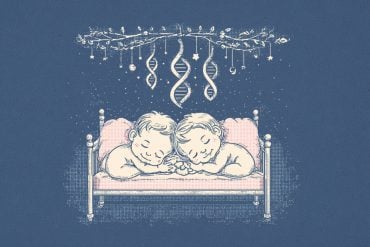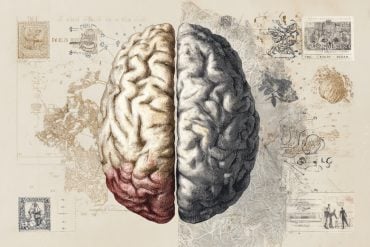Summary: Middle-school aged children with vitamin D deficiency were twice as likely to develop externalizing behavior problems and mood disorders during adolescence than their peers with higher levels of the vitamin.
Source: University of Michigan
Vitamin D deficiency in middle childhood could result in aggressive behavior as well as anxious and depressive moods during adolescence, according to a new University of Michigan study of school children in Bogotá, Colombia.
Children with blood vitamin D levels suggestive of deficiency were almost twice as likely to develop externalizing behavior problems–aggressive and rule breaking behaviors — as reported by their parents, compared with children who had higher levels of the vitamin.
Also, low levels of the protein that transports vitamin D in blood were related to more self-reported aggressive behavior and anxious/depressed symptoms. The associations were independent of child, parental and household characteristics.
“Children who have vitamin D deficiency during their elementary school years appear to have higher scores on tests that measure behavior problems when they reach adolescence,” said Eduardo Villamor, professor of epidemiology at the U-M School of Public Health and senior author of the study appearing in the Journal of Nutrition.
Villamor said vitamin D deficiency has been associated with other mental health problems in adulthood, including depression and schizophrenia, and some studies have focused on the effect of vitamin D status during pregnancy and childhood. However, few studies have extended into adolescence, the stage when behavior problems may first appear and become serious conditions.
In 2006, Villamor’s team recruited 3,202 children aged 5-12 years into a cohort study in Bogotá, Colombia, through a random selection from primary public schools. The investigators obtained information on the children’s daily habits, maternal education level, weight and height, as well as the household’s food insecurity and socioeconomic status. Researchers also took blood samples.

After about six years, when the children were 11-18 years old, the investigators conducted in-person follow-up interviews in a random group of one-third of the participants, assessing the children’s behavior through questionnaires that were administered to the children themselves and their parents. The vitamin D analyses included 273 of those participants.
While the authors acknowledge the study’s limitations, including a lack of baseline behavior measures, their results indicate the need for additional studies involving neurobehavioral outcomes in other populations where vitamin D deficiency may be a public health problem.
In addition to Villamor, authors included Sonia Robinson of U-M’s School of Public Health at the time of the study; Constanza Martin and Henry Oliveros of the University of La Sabana, Colombia; Mercedes Mora-Plazas of the Foundation for Research in Nutrition and Health in Colombia; and Betsy Lozoff of the Center for Human Growth and Development and the U-M Medical School.
Source:
University of Michigan
Media Contacts:
Nardy Bickel – University of Michigan
Image Source:
The image is in the public domain.
Original Research: Closed access
“Vitamin D Deficiency in Middle Childhood Is Related to Behavior Problems in Adolescence”. Sonia L Robinson, Constanza Marín, Henry Oliveros, Mercedes Mora-Plazas, Betsy Lozoff, Eduardo Villamor.
Journal of Nutrition. doi:10.1093/jn/nxz185
Abstract
Vitamin D Deficiency in Middle Childhood Is Related to Behavior Problems in Adolescence
Background
Vitamin D deficiency (VDD) is associated with depression and schizophrenia in adults. The effect of VDD in childhood on behavioral development is unknown.
Objectives
We aimed to study the associations of VDD and vitamin D binding protein (DBP) in middle childhood with behavior problems in adolescence.
Methods
We quantified plasma total 25-hydroxyvitamin D [25(OH)D] and DBP in 273 schoolchildren aged 5–12 y at recruitment into a cohort study in Bogota, Colombia. Externalizing and internalizing behavior problems were assessed after a median 6-y follow-up by parental report [Child Behavior Checklist (CBCL)] and self-report [Youth Self-Report (YSR)]. We estimated mean problem score differences with 95% CIs between exposure categories using multivariable linear regression. We also compared the prevalence of clinical behavior problems (score >63) between exposure groups. We assessed whether the associations between DBP and behavior problems were mediated through VDD.
Results
Mean ± SD CBCL and YSR externalizing problems scores were 56.5 ± 9.3 and 53.2 ± 9.5, respectively. Internalizing problems scores averaged 57.1 ± 9.8 and 53.7 ± 9.8, respectively. VDD [25(OH)D <50 nmol/L] prevalence was 10.3%. VDD was associated with an adjusted 6.0 (95% CI: 3.0, 9.0) and 3.4 (95% CI: 0.1, 6.6) units higher CBCL and YSR externalizing problems scores, respectively, and an adjusted 3.6 (95% CI: 0.3, 6.9) units higher CBCL internalizing problems scores. The prevalence of clinical total externalizing problems was 1.8 (95% CI: 1.1, 3.1) times higher in children with VDD than that in children without VDD. DBP concentration below the population median was related to higher YSR aggressive behavior and anxious/depressed subscale scores and to higher prevalence of clinical total externalizing problems. The associations between DBP and behavior problems were not mediated through VDD.
Conclusions
VDD and low DBP in middle childhood are related to behavior problems in adolescence.







